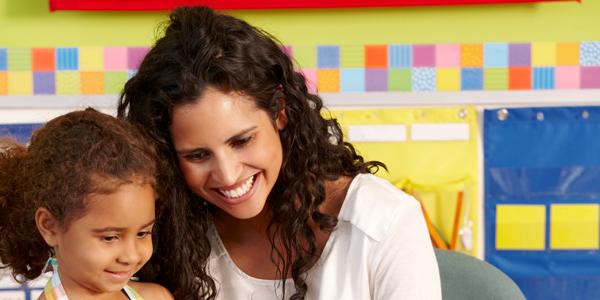Celebrate Your Child’s Multilingualism!

You are here
Delis Cuéllar, PhD
Preschoolers who are exposed to multiple languages experience many benefits. For instance, multilingual children have shown increased mental flexibility, better focus, and a greater ability to problem solve than children who are exposed to only one language. As a parent of a child learning two or more languages, you can help sustain your child’s ability and interest in using all the languages they hear by being enthusiastic and playful about multilingualism.
Here are some suggestions:
- Playfully point out words that sound similar even though they are in different languages. You can do this throughout the day. When you’re in the vegetable aisle at the grocery store, you can pick up a tomato and say, “Tomato sure sounds like tomate. Tomato is how we say it in English, and tomate is how we say it in Spanish.” When visiting friends, you can remind your child that “Hallo and hello sound almost the same, but hallo is German and hello is English.”
- Use routines to incorporate vocabulary in multiple languages. When playing tag or another outdoor game, you can describe how fast or slow your child is moving in both English and Spanish by saying, :“You are moving very fast, muy rápido.” When walking outside toward the car on your way to preschool, point to the sunny sky and describe the weather using English and Portuguese in combination: “Sunny. Ensolarado.”
- Praise your child’s use of different languages. Whenever your child uses his different languages, be sure to celebrate it. You can do it by saying, “It’s so wonderful that you speak more than one language. The more languages you can use, the more friends that you can have!”
- Make celebrations multilingual occasions. When celebrating your child’s birthday, you can sing the traditional birthday song used in your home language and home culture and, using YouTube, you can play videos of the popular American “happy birthday” song in English or in additional languages, such as “Zum Geburstag viel Glück” in German, “Cumpleaños feliz” in Spanish, or “Tanti auguri a te” in Italian.
These are just some of the fun ways you as a parent can be involved in your child’s emerging multilingualism.
Delis Cuéllar, PhD, is part of the research faculty at the University of Wisconsin-Madison, where she conducts research on policies, practices, and ideologies affecting childhood bilingualism and the engagement of culturally and linguistically diverse parents in US preschool settings.